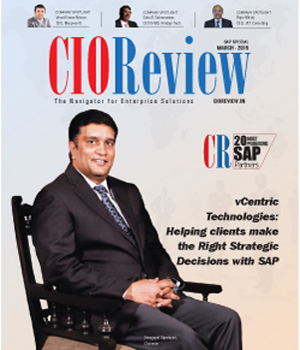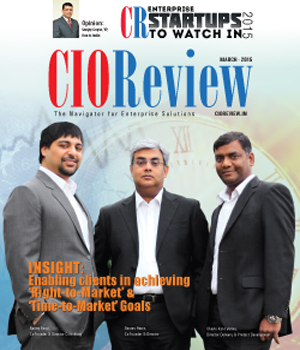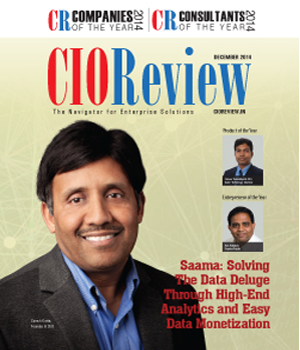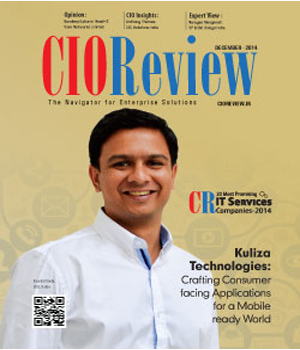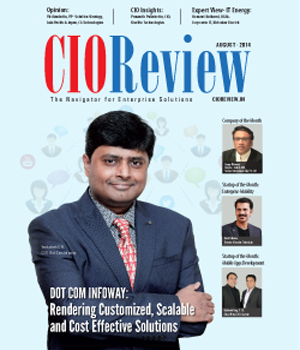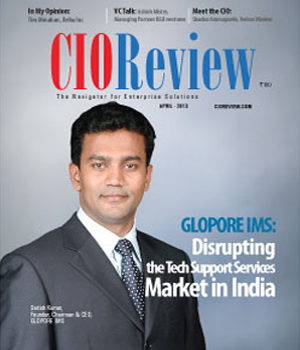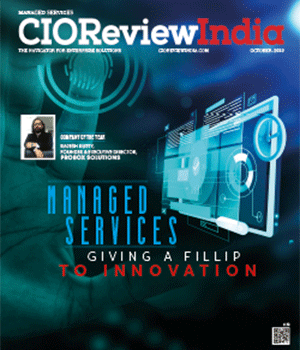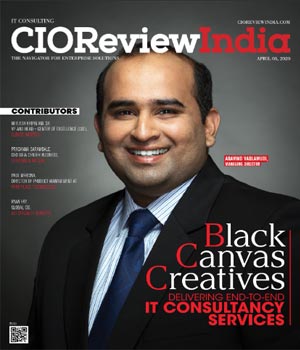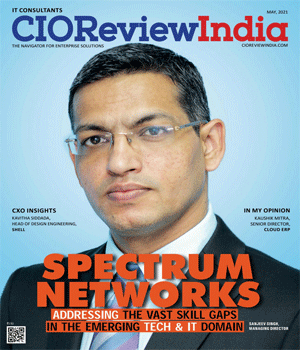
Sharing Services In 2020
Manuj Desai, A Technology Leader & Author of Clinch the Deal - Negotiation Strategies To Get What You Want | Friday, 27 September 2019, 04:08 IST
 When I was asked about can I write an article on trends in Managed services or Shared services, I thought how many of us have this completely figured out on what it really means as sharing services. So instead of explicitly writing about managed or shared service I thought of starting with a story.
When I was asked about can I write an article on trends in Managed services or Shared services, I thought how many of us have this completely figured out on what it really means as sharing services. So instead of explicitly writing about managed or shared service I thought of starting with a story.
We all have taken trips haven’t we? Some probably short trips, some probably long ..long trips? If it’s in a large group we end up renting a bus or reaching there by a plane, sound familiar so far?
Have you ever wondered what type of service are we using when we sit in a plane? It’s shared amongst multiple people – so that would be shared service? Yes / No? The simple questions you want to ask yourself is do you own the operations of the plane? Are you responsible for everyone that is sitting in the plane? Mostly the answer is, probably not; unless you really own the planeJ. Here is simple definition of what type of service are you using.
Managed Service:
It is a fully outsourced model, where various functions are managed by third-party contractor (in our example an airline operator). In managed services the provider takes all major decisions while we just review or follow their processes. In the case of organizations one pays for all outsourced work/function.
Shared Service:
It’s a business model that helps leverage most-used resources across different departments within an organization. The model helps ‘share’ the resources with the rest of the company.
How do you, as organizations decide which one is good for you? Think about our plane example. Is your primary function operating an airline? Would you rather use a plane seat when you just decide to fly? If so then let the airplane be someone else’s forte and you pay as you go.
If your primary function is operating an airline then would you rather get the cooked meal for passengers from outside or launch a company which would make food too? How about beverages? Would you make them too? I think you get the gist.
Sharing services in the earlier years was limited to plain “vanilla” Information Technology and some of the core functions of the organization. The trends have been ever changing and with development of new technology areas, the trends are now moving very fast. As organizations continue to evaluate effective ways to operate and juggle the change of today’s landscape; an organization does need to keep a few ground rules in mind which are simple design principles.
1) Keep your business focused on what matters the most.
2) Target needs to be growth of the core business.
3) Everything else not a part of your core business is support structure for business to succeed.
4) Organization needs control and influence on what we consider as support structure.
By 2023, the “sharing service” market will swell to $282 billion from $180.5 billion last year. This is a 56 percent surge according to a report released last fall by Markets-and-Markets, a business-to-business research firm good with the ground rules? Let’s now study a few technology trends on what could be considered as candidates for sharing services, the idea should be combining the “siloed” functions to reduce duplication.
1) Hyperconverged Infrastructure.
The need for speed and efficiency in this competitive market is making organization think about changing the landscape of how applications were developed and deployed. Gone are the days when IT teams used to configure various components including infrastructure to be ready for a change of application landscape. A Hyperconverged solution combines computation, network, and storage into an easy to use system to enable rapid deployment of new services, offerings using the power of shared resource pools. Hybrid cloud is one such offering of Hyperconverged Infrastructure; many more being evaluated as we speak.
2) Cyber Invasions also called as Cyber Security.
The past year has witnessed an increased number of cyber-attacks, which has pushed the organization to start thinking “security-first”. Until now the attacks were worm based where destruction impact was not huge, with the trend changing to “ransom” the landscape now is completely different. We are at a junction where it’s not about owning or installing security solutions, the focus is on protection or overcoming any attack. While everyone is working on full proofing their organization, a single solution and seamless recovery still looks a little further off.
3) Emerging Technologies like Internet of Things (IoT) and Blockchain.
Active IoT devicies are expected to more than double in number from 10 Billion in 2019 to 22 Billion in 2023 according to report filed by IoT Analytics. These numbers are good enough to change the perspective of organizations as workplaces will be using “smart devices” to make real-time fact-based decisions which in today’s date is still left to human guess work.
Blockchain is no different; organizations have started to think about throwing their paper piles away. Contract Management, book keeping to standardizing transactions will change the way organization things about keeping records of the business.
4) Automation
Everything that is repeatable can be automated, has been the moto of organization these days as companies work on redefying the way they do business. Introduction of ease use automation techniques have enabled organization to reap benefits. The next phase of automation to look out for will be pre-fabricated automation, where everything which is repeatedly standard is already available in the market just plug and play.
5) As-a-service
This term when we heard it the first time sounded very interesting. SaaS or Software as a Service is where this discussion started. Now we have reached a point where the first letter keeps changing while the “As-a-Services” gets added to everything one can think of. Think of a letter we have that covered. PaaS (Platform as a service), DaaS (Drone - as -a - service), FaaS (Finance as a service), etc.
In one of the presentations when I made this comment, people did ask me when will we reach to a point where we need two letter added to “As-a-Service”; my answer was simple now. “Shared Service - as - a - Service”.
On a serious note we do have (AIaaS) - “Artificial Intelligence - as - a - service”
6) Out-come based functions
In today’s technology world organizations are building capabilities to be able to quantify results in real-time, which are creating a need to pursue advance analytics, visualization and reporting. The pressure to deliver on promises with minimal loss is the key motivator. Necessity has always been the mother of invention.
An organization should look at sharing those services which are needed for its operations but are not part of their core business, everything considered as a support structure can be at some point evaluated to optimize the resources.
The final choice of service would depend on the type and function of your organization; it would be interesting to see how companies adopt to the ever changing landscape while still trying to protect the Intellectual properties.
CIO Viewpoint
With Managed Services Organizations Can Reduce...
By Krishnakumar Madhavan, Head IT & Innovation, KLA Software India Pvt Ltd
By Amandeep Singh, Vice President & Group Head - IT Infrastructure, Thomas Cook India Limited
By Brian Clarke, Solutions Architect-Networking and Collaboration, OneNeck IT Solutions
CXO Insights
Innovation in IT: Meeting Evolving Demands and...
By K Shivasankar, Vice President - Technology & Solutions, India, NTT DATA Inc
Low-Code/No-Code: The Key to Intelligent...
By Sachin Panicker, Chief AI Officer, Fulcrum Digital
Maximizing Business Insight with Big Data...


